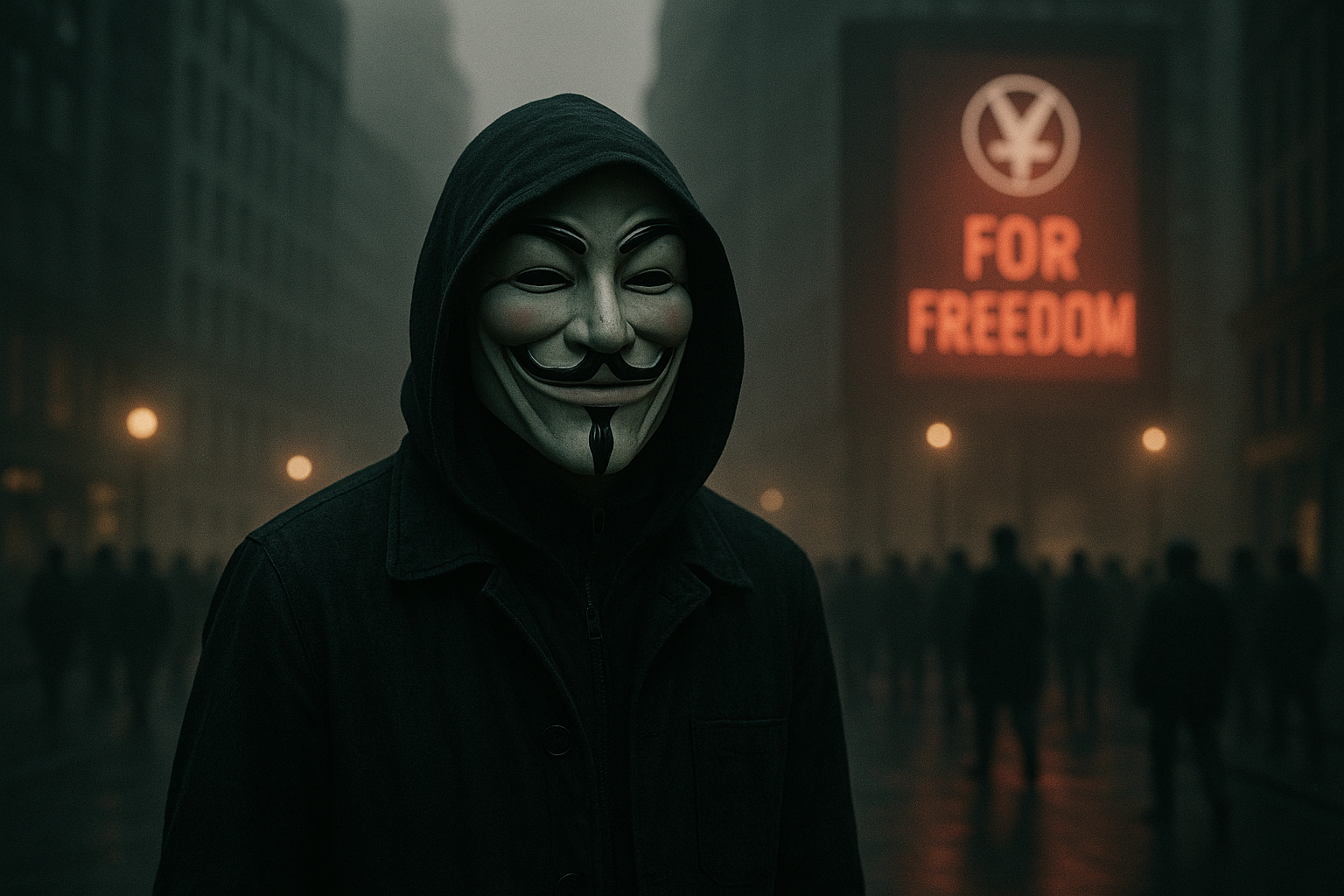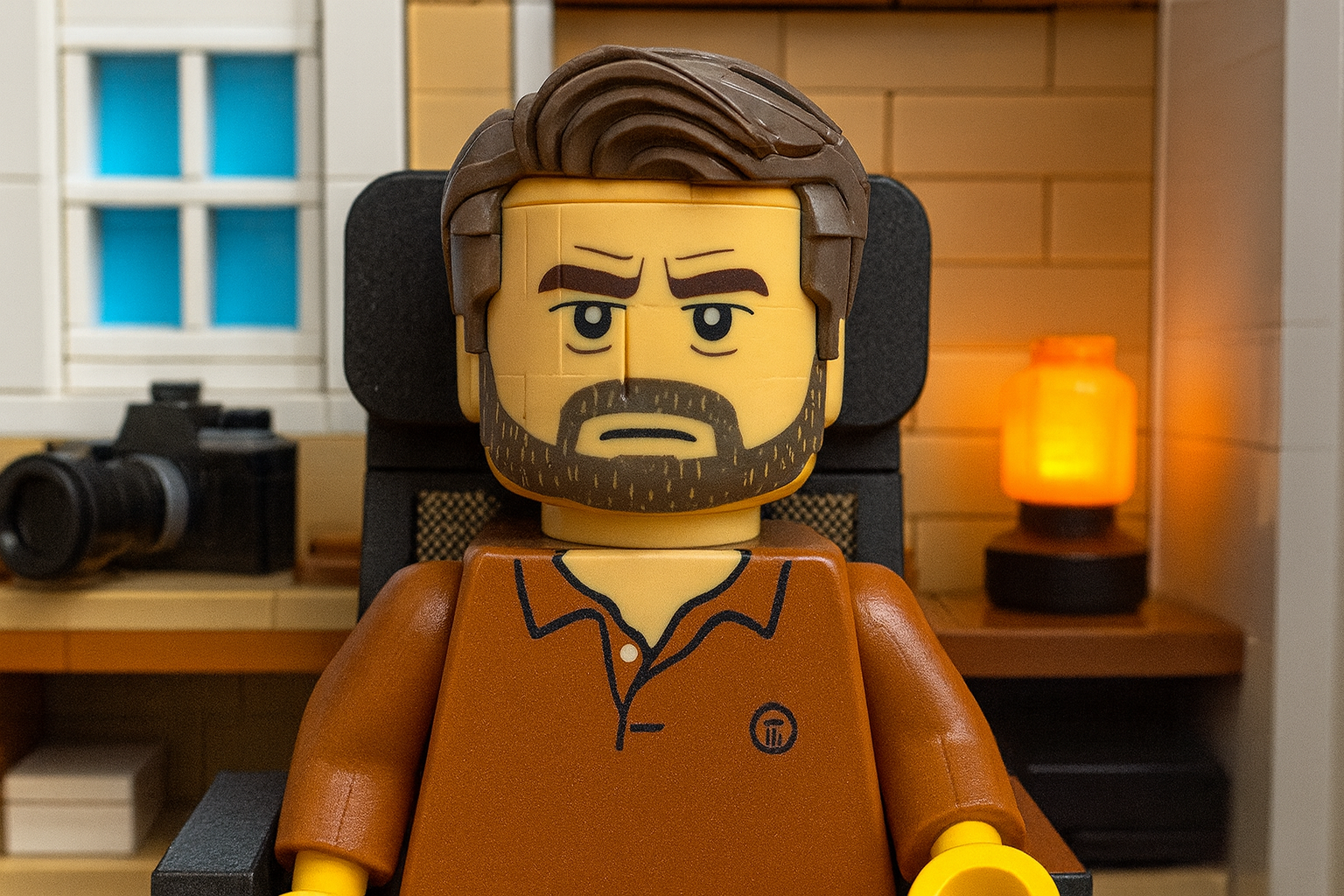V for Vendetta¶
The dystopia that became reality¶
Watching V for Vendetta in 2025 is no longer like revisiting a dystopian fantasy. It's like watching the news, only with better dialogue.
I watched the film again last week after quite a while, and it got me thinking. When Alan Moore first published the graphic novel in the 1980s, it reflected the Thatcher era with its politics, social unrest, and the constant fear of nuclear war. He wrote about a society governed by fear, propaganda, and a regime that promised order at the price of freedom. When the film arrived in 2005, the world was preoccupied with terrorist threats, the Patriot Act, and surveillance. Back then, the story felt like a warning.
Today, twenty years later, for me, it feels more like a manual.
We see how today's leaders from Moscow to Beijing, from Washington to Ankara use the same tools: crises and threats to centralize power. In Russia, war is justified through talk of "existential threats." In China, mass surveillance is motivated by promises of stability. In Europe and the USA, new digital control systems are built under the banner of "security." The COVID pandemic showed how quickly "temporary" powers could be introduced even in democracies, and many of these tools remain in place today. The arguments shift, but the method remains the same: creating compliance through fear.

The economy becomes part of the same game. Trade wars, sanctions, and energy conflicts have become everyday reality. The trade war between the USA and China wasn't just economic but a geopolitical power play, reshaping global alliances through tariffs and technology bans. This shows up in inflation, rising food prices, and an uncertainty that erodes trust in the system. Here lies the parallel to V for Vendetta: the regime in the story uses a constructed crisis to consolidate power. In our time, this happens through tariffs, gas pipelines, and digital currencies. When people worry about rent, it becomes harder to protest against power.
The war in Ukraine is the most obvious example, but it's not alone. New fronts burn in the Middle East, and tensions between superpowers rise again. The world has returned to a state where conflicts are used to discipline both populations and allies. It's the same dynamic as in the series: create a threat, point out an enemy, demand loyalty.
Meanwhile, surveillance grows beyond what Alan Moore could even imagine. But unlike the film's centralized Big Brother system, today's control is more sophisticated and pervasive. Where the film showed camera eyes on the streets, we now have AI-driven facial recognition, total data collection, and algorithms that can map entire societies. The difference is that we often choose to participate voluntarily through social media, smartphones, and "convenient" services that collect our data. Google and Meta know more about us than any secret police could ever have dreamed of, and we carry surveillance in our pockets.
The most frightening aspect may not be the technology or politics themselves but how quickly people adapt. Just like the population in V for Vendetta who silently listen to the Chancellor's speeches, we get used to hearing the same headlines about threats, crises, and enemies. We shrug our shoulders at our digital footprints being collected, or at opposition voices being silenced in countries we don't consider "free" anyway. Gradual erosion of expectations has become more effective than brutal oppression.
Yet the picture isn't entirely dark. Legal systems still function in many democracies, elections are held, and civil society continues to fight. Resistance takes new forms from whistleblowers like Edward Snowden to decentralized networks and local movements building alternatives from the ground up. It just looks different from V's dramatic symbolic revolt.
The Guy Fawkes mask, once a symbol in a comic panel, became an icon of resistance during Occupy and Anonymous in the 2010s. Today it feels almost ironic for while the mask still sells by the thousands, the forces it symbolized resistance against have grown stronger and more sophisticated. The symbol has been commercialized while the system it protested against has been institutionalized.
So we've received the warning, more than once. Yet here we stand, in a world where dystopia is no longer fiction but everyday reality though more complex and pervasive than Moore ever imagined.
And perhaps that's why Alan Moore's words bite harder today than ever:
"People should not be afraid of their governments. Governments should be afraid of their people."
The irony is that Moore wrote it as a warning. We are reading it as prophecy.
